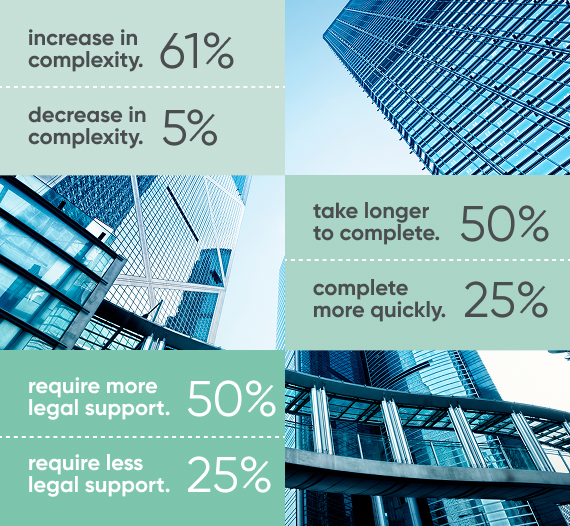Getting deals done
How are complexity and regulation hindering M&A strategies?
74% of leaders say that increasing regulation is making M&A activity much more challenging. A buyer-seller mismatch is also hampering deal-making, with regulatory compliance a top focus for buyers but not a core strength of all sellers. Navigating complexity and overcoming this misalignment will be key to driving deals forward.
The appetite for M&A is strong. Keen to make the most of improving market conditions, business leaders are optimistic about the potential for M&A to expand their geographic footprint, increase their supply chain resilience, and enhance their tech capabilities. The long-awaited surge in deals looks imminent.
However, some important barriers stand in the way. Almost 6 in 10 leaders of US and European businesses (58%) say that complexity is slowing down their organization's M&A strategy, and that the key drivers of this complexity are stricter regulatory environments, increased cybersecurity risk, and volatile market conditions.
Some of these drivers, such as heightened cybersecurity risks, have considerably increased compared to a decade ago, posing new challenges for businesses and raising questions about what factors may emerge in another 5, 10, or even 15 years. In addition to these factors, operating in a highly risk-averse society often causes business leaders to introduce unnecessary complexity themselves, driven by their own fear of potential risks and their desire to mitigate them.
Read time
5 min read
Published date
11 Feb 2025
























